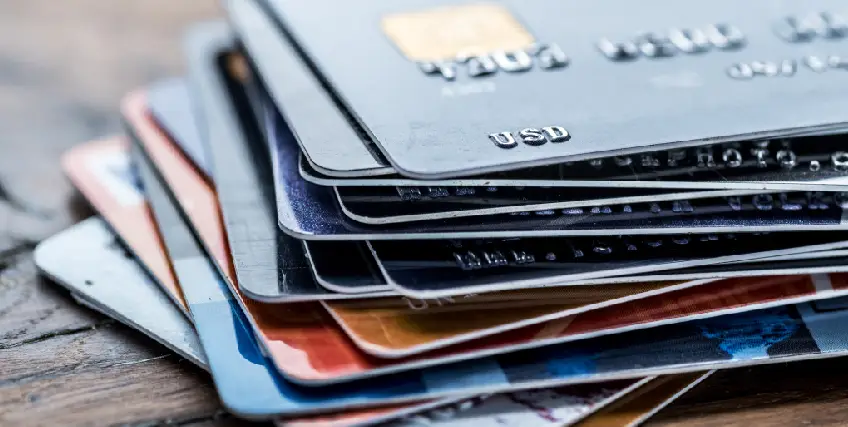How to Minimize Credit Card Machines Charges for Your Small Business
April 03, 2025 | Last Updated on: April 03, 2025

According to a recent report from the Federal Reserve, 83% of US adults have a credit card, 94% of US adults with an income over $50,000 have a credit card, and 98% of US adults with an income over $100,000 have a credit card. With credit cards being ubiquitous among US consumers, small businesses need to accept credit card payments. However, there are fees associated with processing credit cards and small businesses need to understand how to navigate them to minimize credit card machine charges for small business. This article has two main sections that focus on minimizing credit card machine charges for small business and implementing alternative payment methods (using merchant account infrastructure likely already in place) to minimize fees and give customers more choices to make a payment.
Ways to Minimize Credit Card Machine Charges for Small Business
There are myriad factors when it comes to minimizing credit card machine charges for small business and there is no one-size-fits-all solution for every small business. However, we will break down a range of tactics to minimize credit card machine charges for small business and it is up to each small business to determine if the tactic discussed applies to their specific situation:
Surcharge
A surcharge is a percentage-based markup that the business is requiring the customer to pay to use their credit card. The fee is intended to offset credit card charges for small business and is not intended to be a revenue driver for businesses. Not to be confused with a convenience fee - which is always a flat dollar amount – credit card surcharges are typically legal business practice with some exceptions. These 10 states plus one US territory have made adding a surcharge illegal: California, Florida, Kansas, Maine, New York, Oklahoma, Texas, Utah, Connecticut, Massachusetts, and Puerto Rico. Although a surcharge is a legitimate way to reduce credit card charges for small business (except in the states/territory we just discussed), small businesses should consider the potential impact on their customers’ experience and what their competitors might be doing.
Switch to interchange-plus pricing
Interchange-plus pricing can reduce credit card processing fees for small business significantly compared to flat-rate pricing, depending on your card usage pattern. Analyzing your specific transactions can help effectively minimize credit card machine charges for small business.
Switch to flat-rate pricing
For certain cardholders, flat-rate pricing might be preferable to interchange-plus pricing. Interchange-plus pricing is an adjustable-rate pricing model where credit card machine charges for small business depend on the type of credit card used. Businesses need to research interchange fees for each card whereas flat fee is more straightforward to plan for. In some cases, the interchange rate for American Express transactions can be at, near, or over 3% (typically around travel and hotels) which means interchange-plus pricing would be more expensive than flat-rate pricing for those transactions. It comes down to knowing your data and the services you sell.
In-person vs online vs manual entry
In-person swipe, tap, or chip credit card transactions made on a point-of-sale card reader are cheaper than both online credit card and manual-entry transactions. There is less risk of credit card fraud for an in-person transaction. If it makes sense for your business to encourage in-person transactions, this is a way to lower your card machine charges for your business. Unfortunately for certain eCommerce businesses with no physical footprint, this savings tactic might not be possible because you can only accept online payments.
Shop around
There are a lot of vendors in this space and competition among them means better pricing and reduced credit card processing fees for your business. You might be paying higher transaction fees and not realize savings is possible simply by switching vendors. Many websites offer comparisons and calculators to help you determine which payment processing service is best suited for your small business. Certain vendors charge monthly fees, while others do not, etc. Competitive analysis of different payment processing vendors is essential to minimize credit card charges for small business.
Negotiate
You might as well ask! Especially for businesses that require a custom solution and have an account manager at their vendor they can talk to. Direct negotiation with vendors can lower card machine charges and overall credit card charges for small business. Low-volume, occasional-sale businesses might not have the negotiating power to get lower rates. Keep in mind that businesses can’t negotiate the rates of interchange-plus pricing with credit card issuers.
Require a minimum purchase amount
For small business owners that sell low-cost inventory - think a convenience store at the corner - requiring a minimum purchase amount can save on small transaction-related credit card charges for small business, effectively minimizing overall fees. If a customer were to purchase something for $1 or less, the fees alone might cause the store to lose money on the transaction. The Dodd-Frank Wall Street Reform and Consumer Protection Act of 2010 permits businesses to impose a minimum purchase amount of up to $10 for credit card use. The $10 minimum will help offset the credit card processing fees or encourage the customer to use cash or buy more. Keep in mind that minimum purchase amounts cannot be applied to transactions that are processed with a debit card. Similar to a surcharge, small businesses should consider the potential impact on their customers’ experience and what their competitors might be doing.
PCI Compliance
PCI (Payment Card Industry) compliance is a set of data security guidelines and practices around the handling of your customer's sensitive credit card information; a billing address is an example. A merchant account might charge a compliance fee, a non-compliance fee, or no fee at all. Non-compliance fees are usually higher than compliance fees. Fees for PCI compliance come down to who is handling, storing, and safeguarding the customer's data. It might be a small business, or it might be the merchant services provider. Although not part of PCI compliance, another way to maintain a strong data security posture is to process payments by having your customers use a credit card with an EMV chip. Chip-based security is common on credit cards today and EMV cards store payment information on a secure chip instead of a magnetic stripe. In short, ensuring PCI compliance reduces non-compliance fees and mitigates extra credit card charges for small business associated with security breaches or mishandled customer data.
Reduce Chargeback Fees
Most merchant accounts and credit card processing companies have service fees around chargebacks. Minimizing chargebacks through operational improvements reduces extra fees, directly impacting overall credit card charges for small business. The most common chargeback scenario is when a customer calls their credit card company or card-issuing bank and claims they do not recognize a charge that was made with their card. If your business receives a high percentage of chargebacks (anything near or over 1% would be considered high), you need to audit your operations. In addition to chargeback fees, companies with a high transaction volume will also be paying in the form of time, effort, and energy of the employee who must deal with chargebacks.
Alternative Payment Methods to Minimize Credit Card Machine Charges for Small Business
Giving your customers a choice in how they pay you is part of providing good customer service. In addition to credit cards, small businesses can accept other forms of payment that will minimize credit card machine charges. Credit card processors still charge fees for other forms of payment, but relative to credit card fees they can be a lot less. We will break down a range of alternative payment methods and their associated tactic to encourage customers to use them. Ultimately it is up to each small business to determine if the method discussed applies to their specific situation. Here are some alternative payment options that can substantially decrease credit card machine charges for small business:
Debit Cards
Debit transactions typically have lower processing fees compared to credit cards, significantly reducing overall card machine charges for business.
ACH Direct Debit
ACH payments incur lower fees compared to credit cards, effectively helping small businesses minimize credit card machine charges for small business.
Cash
Promoting cash payments completely eliminates any credit card machine charges for small business, offering an immediate cost-saving alternative.
Conclusion
Understanding and carefully managing payments data can help businesses strategically minimize credit card machine charges for small business. Considering various strategies and payment alternatives allows effective management of expenses.
FAQs
How to reduce credit card processing fees?
Negotiate better rates, encourage ACH payments, prevent chargebacks, maintain PCI compliance, and consider surcharges or cash discounts to effectively reduce credit card charges for small business.
What's the cheapest way to minimize card machine charges for business?
Interchange-plus pricing or subscription-based processing provides the closest rates to wholesale pricing, effectively minimizing credit card charges for small business.
How to accept card payments for a small business?
Choose a payment service provider, set up a merchant account, integrate secure gateways, and use the right hardware to minimize card machine charges for business and streamline acceptance of payments, reducing credit card charges for small business.
What do smaller merchants use to process credit card payments?
A reliable point-of-sale (POS) system simplifies transactions, helps manage card machine charges, and enhances customer experience, thus helping minimize overall credit card charges for small business.




